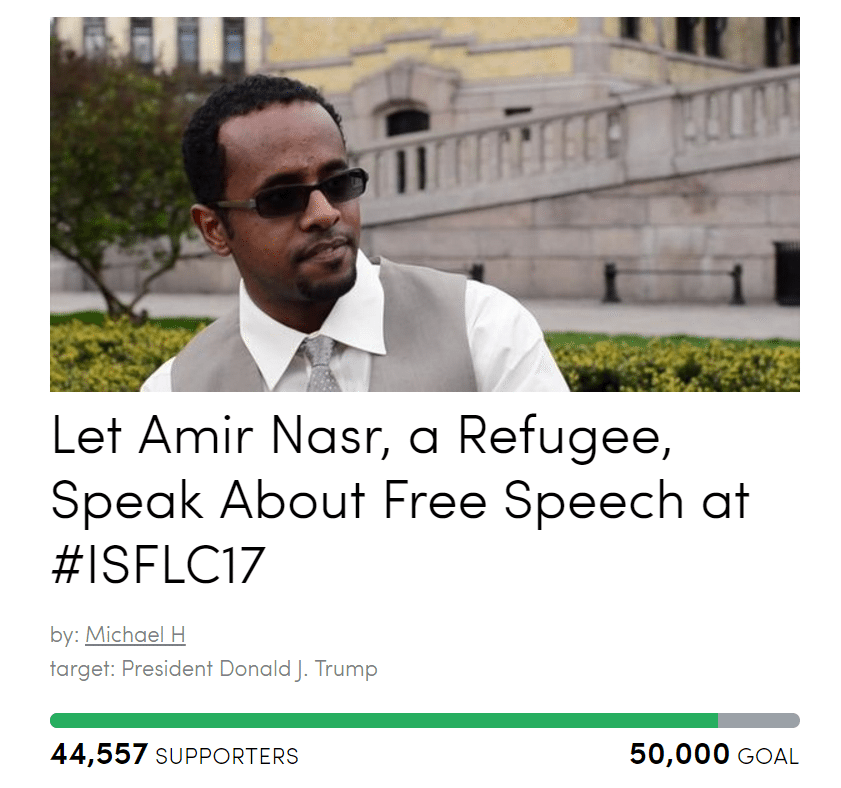Supporting Amir Nasr, Political Refugee
On the night of Friday, January 27, President Donald Trump used the power of the executive order to impose a travel ban on nationals from seven countries in the Middle East/North Africa region. This could very well be the closest the POTUS will get to fulfilling his campaign promises of ‘extreme vetting‘ and imposing a ‘Muslim ban.’
By Sunday, January 29, protests against the executive order were in full swing throughout the United States. I attended the one just outside the White House in Lafayette Square, and I was joined by many other SFLers in the area. By the time I’d waded through the massive and tightly-packed crowd, other SFLers had already set up a table, and were engaged in the anything-but-low-energy sign-waving and chanting. To understand what we do and why we do it, people came over to learn about Students For Liberty.
I understand that a free market means that goods and people are able to cross borders, that freedom of association involves an easier immigration process, and that no national border is more important than the life of the single individual. These are all perfectly valid reasons to protest the travel ban. But we at SFL had another reason that hit close to home: Amir A. Nasr, one of our scheduled speakers at the International Students For Liberty Conference, was now prevented from entering the United States and speaking at our event.
Amir is a political refugee from Sudan, one of the seven countries named in the executive order. He fled Sudan because he spoke out against fundamentalist Islam and corruption in the government. For the past three years, Amir has resided in Canada. He was coming to ISFLC to speak about the value of free speech. Even the most ardent supporters of a stricter immigration process should realize that preventing Amir from entering the United States does nothing to bolster our national security.
The crowd eventually dispersed from Lafayette Square and the protest ended. I went home, but I knew that just because the protest was over didn’t mean that the fight was over. I went to a petition site, Care2, and made a petition aimed at President Trump requesting that Amir be permitted to enter the United States to speak at ISFLC.
 As of this writing, the petition is closing in on 50,000 signatures.
As of this writing, the petition is closing in on 50,000 signatures.
People from all over the world are showing their support for Amir. The media is paying attention to Amir’s story. However, even with all the support, attention, and the recent developments regarding the executive order, Amir is still unable to enter the United States due to his lack of a visa. This does not mean he is unable to attend ISFLC, as we are planning to host him via a video call service.
There are ways you can help support Amir. His book My Isl@m: How Fundamentalism Stole My Mind—and Doubt Freed My Soul has been banned in some places but is available for purchase in many other countries. I also urge you to sign and share this petition on social media. The impact this travel ban has had on Amir exemplifies the harm caused by the executive order. The President needs to hear our voices to understand that it is not enough to have a strong country — we must have a just country.

